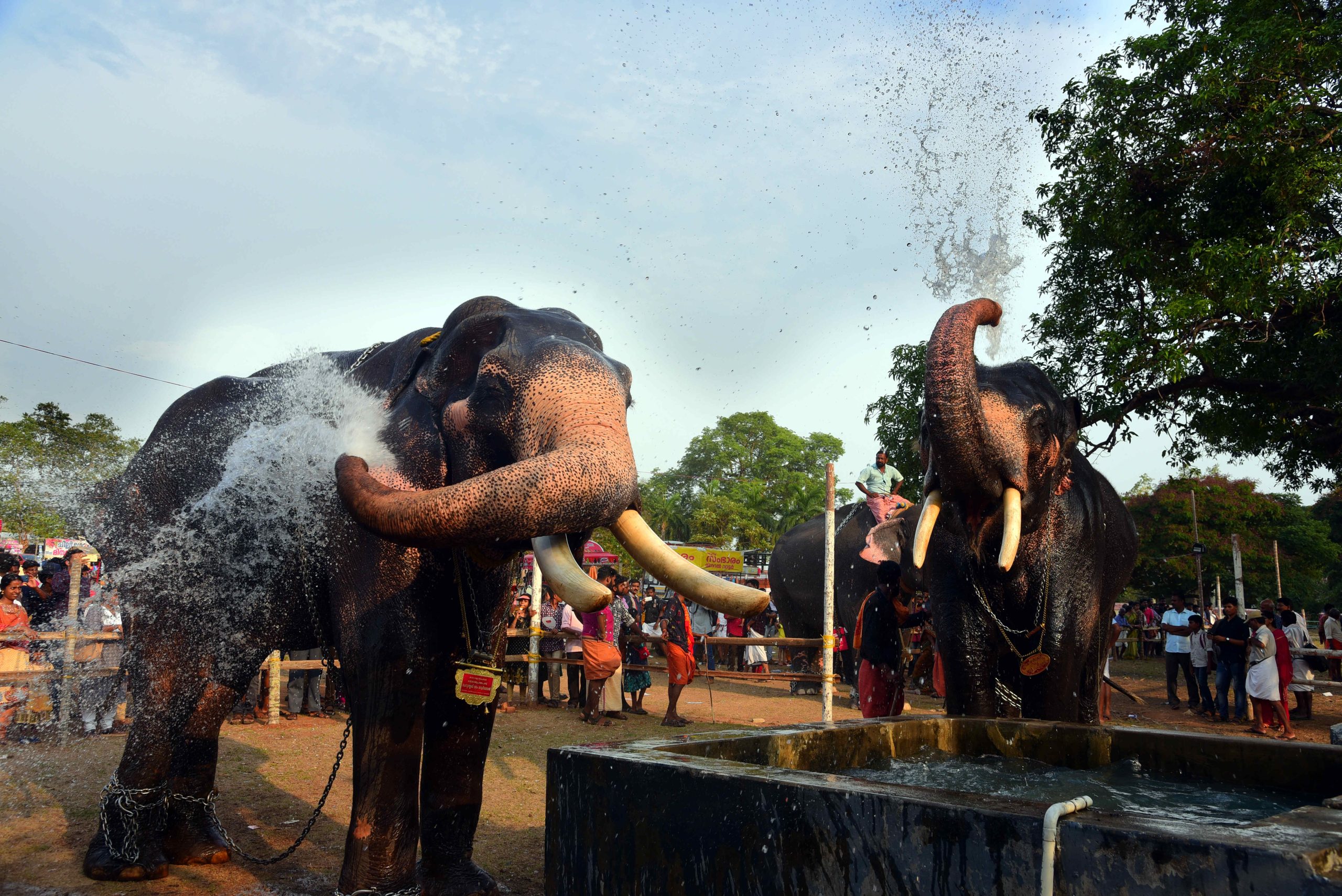The amicus curiae was appointed by the court to supervise the process of clearing the tuskers fit for participating in the festival that was held on 19 April.

An elephant being paraded at Thrissur Pooram. Photo: Supplied.
There were deficiencies in the inspection procedures of elephants intended for participation in the Thrissur Pooram festival, according to an amicus curiae appointed by the Kerala High Court.
In his report submitted to the High Court, the amicus curiae said the inspections were carried out and certificates were issued despite the work, movement, food and other relevant registers regarding the elephants not being available.
The amicus curiae was appointed by the court to supervise the process of clearing the tuskers fit for participating in the festival that was held on 19 April.
In his report, amicus curiae TC Suresh Menon has recommended that “it would be appropriate to direct the forest department to issue necessary directions to the elephant owners to carry the movement register, food register and work register to all the places where the elephants are transported”.
He also suggested that the forest department issue an inspection book to elephant owners who can enter details of all the medical and health certificates of their jumbos in that.
If maintained, “it will be easy for the forest department to verify whether the elephants were under any medical treatment in the past”, he said in the report.
It further stated that according to the Captive Elephant Management Rules 2012, the various registers about an elephant’s ailments, vaccinations, food, etc have to be up-to-date and should be periodically inspected by the forest department officials.
“But no such verification is done in a desirable manner by the officials. It will be appropriate if a direction is issued to the forest department to conduct inspection of the books of the captive elephants periodically at least once in two weeks during the festival season,” the report said.
The other recommendations in the report include bringing elephants to be paraded at massive festivals to the temple at least 24 hours in advance for effective verification.
“It is also beneficial for the elephants which would have sufficient rest prior to their parading,” it said.
The report also stated that right from the start the secretary of the Paramekkavu Devaswom was hostile towards the amicus and also alleged interference by the High Court in the conduct of the Thrissur Pooram.
The report stated that most of the elephants of the Paramekkavu Devaswom were issued tags despite the amicus’ request not to do the same till he returns after the inspection of the jumbos of the Thiruvambady Devaswom.
When the amicus insisted on seeing the elephants to which tags were issued, no assistance was provided and even the mahouts were not present at the site, the report claimed.
With regard to the elephants of the Thiruvambady Devaswom, the report said that some of the jumbos had injuries, but the doctors of the Animal Husbandry Department declared them fit for the event.
The report was submitted before the High Court in compliance of its April 15 direction to the amicus to be present on 18 April at the time of the verification and issuance of fitness certificates to the captive elephants brought for the temple festival.
The Thrissur Pooram, generally billed as the mother of all temple festivals in the state, saw 30 caparisoned elephants— 15 each from the Paramekkavu and Thiruvambady temples —standing face-to-face and being a part of the centuries-old customs and traditions.
The two-centuries-old Thrissur Pooram has its origins in 1798, through a royal edict of the then Raja Rama Varma, popularly known as Shakthan Thampuran, a powerful ruler of the erstwhile princely state of Cochin.
The edict entrusted two local temples—Paramekkavu and Thiruvambady— as the main sponsors of the festivities to be conducted in a competitive spirit.
(Disclaimer: The headline, subheads, and intro of this report along with the photos may have been reworked by South First. The rest of the content is from a syndicated feed, and has been edited for style.)

Jul 26, 2024

Jul 26, 2024

Jul 25, 2024

Jul 25, 2024

Jul 25, 2024

Jul 24, 2024